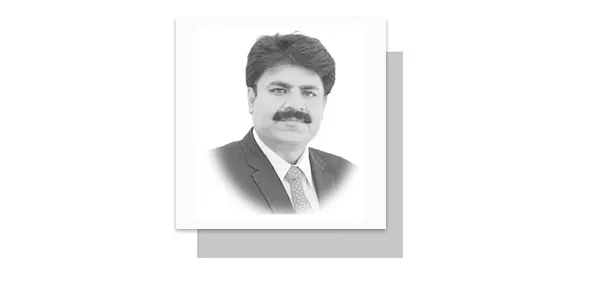THE lower chamber of Pakistan’s Parliament, the National Assembly, has a five-year term. The National Assembly shall continue for a term of five years beginning on the day of its first sitting and shall stand dissolved at the end of its term, unless sooner dissolved, in accordance with Article 52 of the Constitution.
In addition, pursuant to Article 58 of the Constitution, the President of Pakistan may, on the suggestion of the Prime Minister of Pakistan, dissolve the National Assembly at any time before the end of its term. In addition to the aforementioned clause, Article 58 (2) of the Constitution allows the President to dissolve the National Assembly at his discretion if the Prime Minister has been the target of a no-confidence vote and no other National Assembly member commands the confidence of the majority of the members of the house. As a result, in both of the aforementioned dissolution scenarios, the National Assembly election would take place within 90 days in accordance with Article 224(1A) of the Constitution. It is also crucial to note that through the 18th Constitutional Amendment, a strict mechanism for the creation of an emergency by Parliament has been added to Articles 232 to 237 of the Constitution.
There is also a provision available in the Constitution that allows Parliament to pass legislation to extend the National Assembly’s term for a maximum of one year and a maximum of six months after the Proclamation of Emergency has ended. This provision is found in Article 232(6) of the Constitution. However, Article 232 of the Constitution also states that the President may issue a Proclamation of Emergency and that a resolution from the Provincial Assembly of that Province is also necessary if the President is satisfied that a grave emergency exists in which the security of Pakistan, or any part thereof, is threatened by war or external aggression, or by internal disturbances beyond the control of a Provincial Government.
Although Article 232(6) of the Constitution gives Parliament the power to prolong the National Assembly’s term in times of emergency, it’s crucial to remember that the President plays a crucial and necessary role in declaring an emergency. With the words “if the President is satisfied that a great emergency exists in which the security of Pakistan, or any portion thereof, is threatened by war, external aggression, or by an internal commotion that is beyond the control of a Provincial Government,” Article 232 of the Constitution states that the President may declare a state of emergency. Accordingly, the President’s satisfaction is required by the Constitution for the declaration of an emergency under Article 232 of the Constitution.
In addition, a resolution from those Provincial Assemblies would be necessary. However, in the current situation in Punjab and the KP, where the assemblies are dissolved in accordance with Article 112 of the Constitution and nonexistent, it would not be constitutionally possible for the federal government to declare an emergency on its own.
According to Article 235 of the Constitution, if the president determines that a situation has arisen in which Pakistan’s economic life, financial stability, or credit, or any portion thereof, is threatened, he may, after consulting with the governors of the provinces or, as the case may be, the governor of the province concerned, by proclamation, make a declaration to that effect. The executive authority of the federation shall extend to the giving of directives to any province to observe such principles of financial propriety as may be specified in the directives.
According to Article 236 of the Constitution, a proclamation made under this Part may be amended or withdrawn by a later proclamation, and the legality of any proclamation or order made under this Part cannot be contested in court. Additionally, Article 237 states that nothing in the Constitution shall prevent Parliament from passing legislation that would grant immunity to anyone working for the federal government, a provincial government, or any other person for actions taken in connection with maintaining or re-establishing order in any Pakistani region.
Despite the fact that Article 232 (6) of the Constitution allows and give the authority to Parliament for a one-year extension of tenure in emergency situations, but up till now no previous federal government has ever exercised such power to extend the tenure of the National Assembly under this provision since 1973. Further a mere resolution of Parliament would not be enough until the President after being satisfied would not endorse such resolution, and thereafter to issue the proclamation of emergency under Articles 232,233,234 and 235 of the Constitution.
Additionally, the superior courts would have the authority of judicial review under Articles 184(3) and 199 of the Constitution to determine the legality of a proclamation in any situation involving the declaration of an emergency. The court’s final determination regarding the legality of a proclamation of emergency would be binding on all state institutions including federal government under Article 189 of the Constitution because the federal government cannot hold in abeyance or suspend the constitutional provisions related to the superior judiciary.
—The writer is practicing Advocate of Supreme Court. He has earlier served as Chairman Customs, Excise and Sales Tax Appellate Tribunal, Senior Advisor Federal and Tax Ombudsman.
Email: hafizahsaan47@gmail.com









